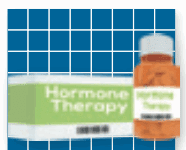By definition, resistant hypertension is high blood pressure that remains above a patients target number despite the use of at least three medications, which may include diuretics, beta blockers, angiotensin II receptor blockers (ARBs), calcium channel blockers, angiotensin-converting enzyme (ACE) inhibitors, or some combination thereof. For most adults, that blood pressure target number is below 140/90; for those with diabetes, its below 130/80. Among the drugs that patients with resistant hypertension should take are thiazide-type diuretics-which help lower blood pressure by reducing water volume in the body-unless there is a specific medical reason why the patient cant take them, says Cleveland Clinic cardiologist Michael Faulx, MD.
To continue reading this article or issue you must be a paid subscriber.
Sign in





